Who We Are
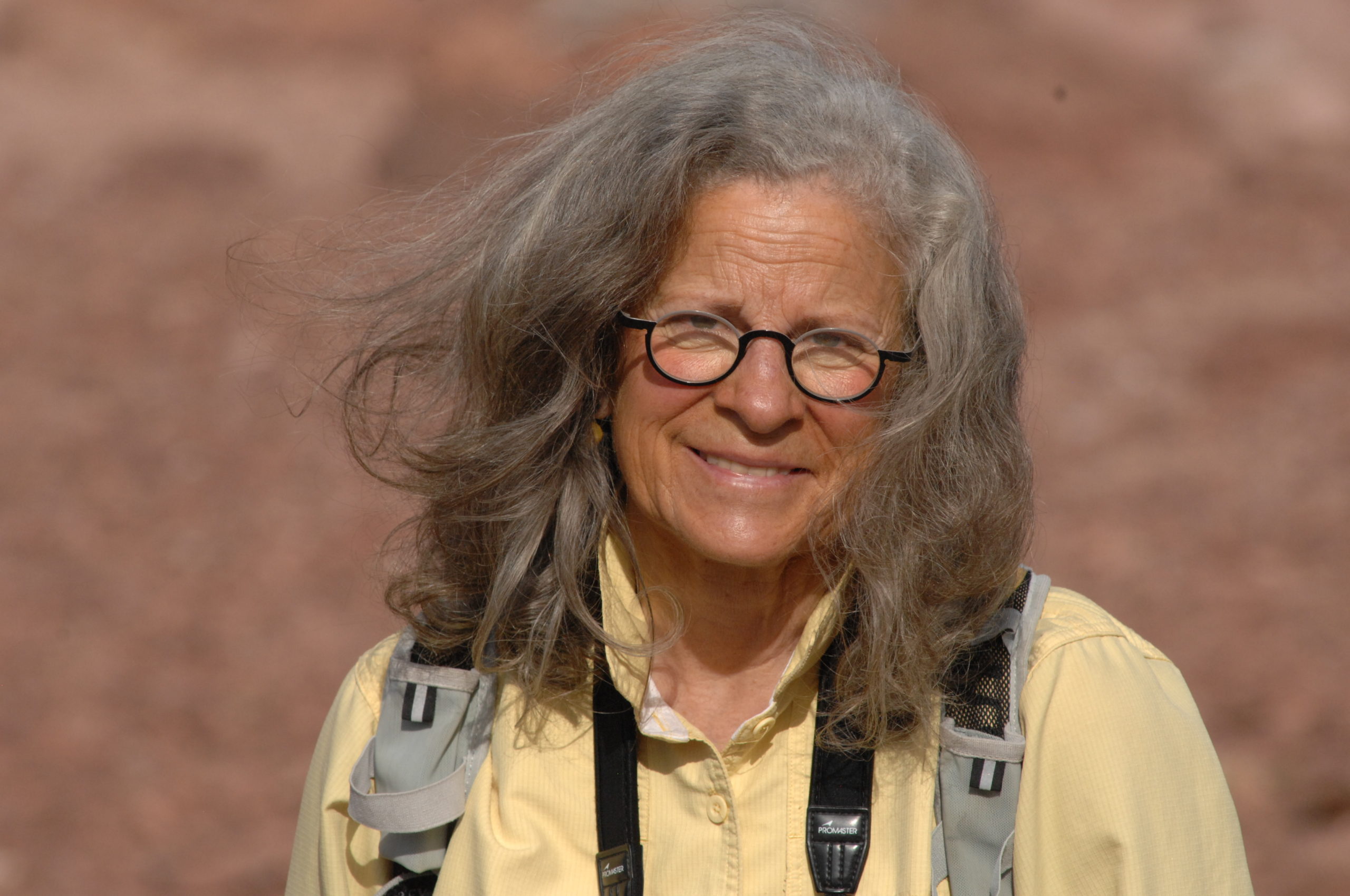
Audrey DeLella Benedict
Publisher & Managing Editor
Audrey Benedict is the founder and director of Cloud Ridge Naturalists, a nonprofit natural history education organization now in its 40th year. She is a naturalist in the classic tradition, an experienced guide, a science writer and a passionate advocate for research and conservation efforts illuminating the repercussions of climate change in Arctic regions and in the global ocean. Audrey is the author of five books: The Naturalist’s Guide to the Southern Rockies (2008); Valley of the Dunes: Great Sand Dunes National Park and Preserve( 2010), with photographers Wendy Shattil and Bob Rozinski; The Salish Sea: Jewel of the Pacific Northwest (2015) and Explore the Salish Sea: A Nature Guide for Kids (2018), with coauthor Joe Gaydos; and Pacific Flyway: Waterbird Migration from the Arctic to Tierra del Fuego, with coauthors Geoff Hammerson and Rob Butler. She splits her time between her home at nearly 9,000 feet along the Colorado Front Range and an off-grid cottage on a tiny island in Washington’s San Juan Islands.
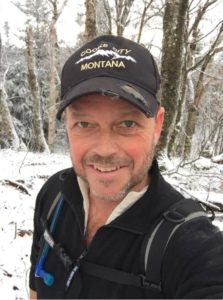
Clyde Lovett
Director
Clyde spent the first 17 years of his career as a professional yacht captain and ocean sailboat voyager. His professional sailing took him to points between Nova Scotia, Venezula, the Galapagos and across the South Pacific twice. Clyde’s career chapter of website and photography work began in 1999 while living amongst and climbing the 14,000 foot mountains of Crestone, Colorado. Since 2004 Clyde has enjoyed living and working in the natural beauty of both coasts and the mountains by spending most of his time in Washington State, Colorado and the Northeast Kingdom of Vermont.
Clyde is now working with Cloud Ridge Naturalists and Cloud Ridge Publishing to expand the reach of these publications to benefit a broader, more expansive, and diverse audience in the interest of furthering the mission based on the philosophy that natural history education inspires and promotes environmental advocacy and stewardship.
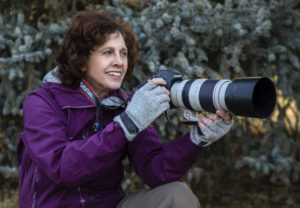
Wendy Shattil
Photography Editor
Wendy Shattil is an award-winning professional wildlife and conservation photographer. Working as a photographic team, she and her late partner and husband, Bob Rozinski, produced fifteen books and their images have appeared in virtually all nature and conservation magazines. Her photographic expertise is based on more than 35 years of photographic excellence and extensive experience in presenting, facilitating, and coordinating programs, producing multi-photographer events, and administering photo competitions. Wendy is a Senior Fellow in the International League of Conservation Photographers, a Fellow in the North American Nature Photography Association, and was the first woman awarded Grand Prize in Great Britain’s Wildlife Photographer of the Year competition. She continues to produce compelling images that influence people to care for our world and uses this talent in her publications, lectures, tours, and assignments. Her specialties include endangered species and fragile places.
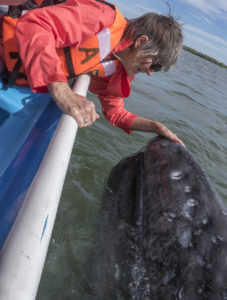
Ann W. Douden
Design & Production
Ann Douden has been happily conceiving, designing, and illustrating publications since her initial venture, Colorado Cache, the community cookbook that sold over a million copies. From that auspicious beginning, she went on to head the graphics department at the Denver Museum of Nature & Science, where in addition to spearheading the book publishing program, she created catalogs, invitations, press packets, buttons, stickers, magnets, posters (really big posters), DVD covers, tattoos, and more. In addition to packaging books for publishers and organizations, Ann has been instrumental in producing exhibition catalogues for the Denver Botanic Gardens, a curriculum guide for Project WET, and a bilingual photographic textile guide. Her innovative designs and contributions to the development of content have benefited nonprofits with conservation missions, including Cloud Ridge Naturalists and Cloud Ridge Publishing.
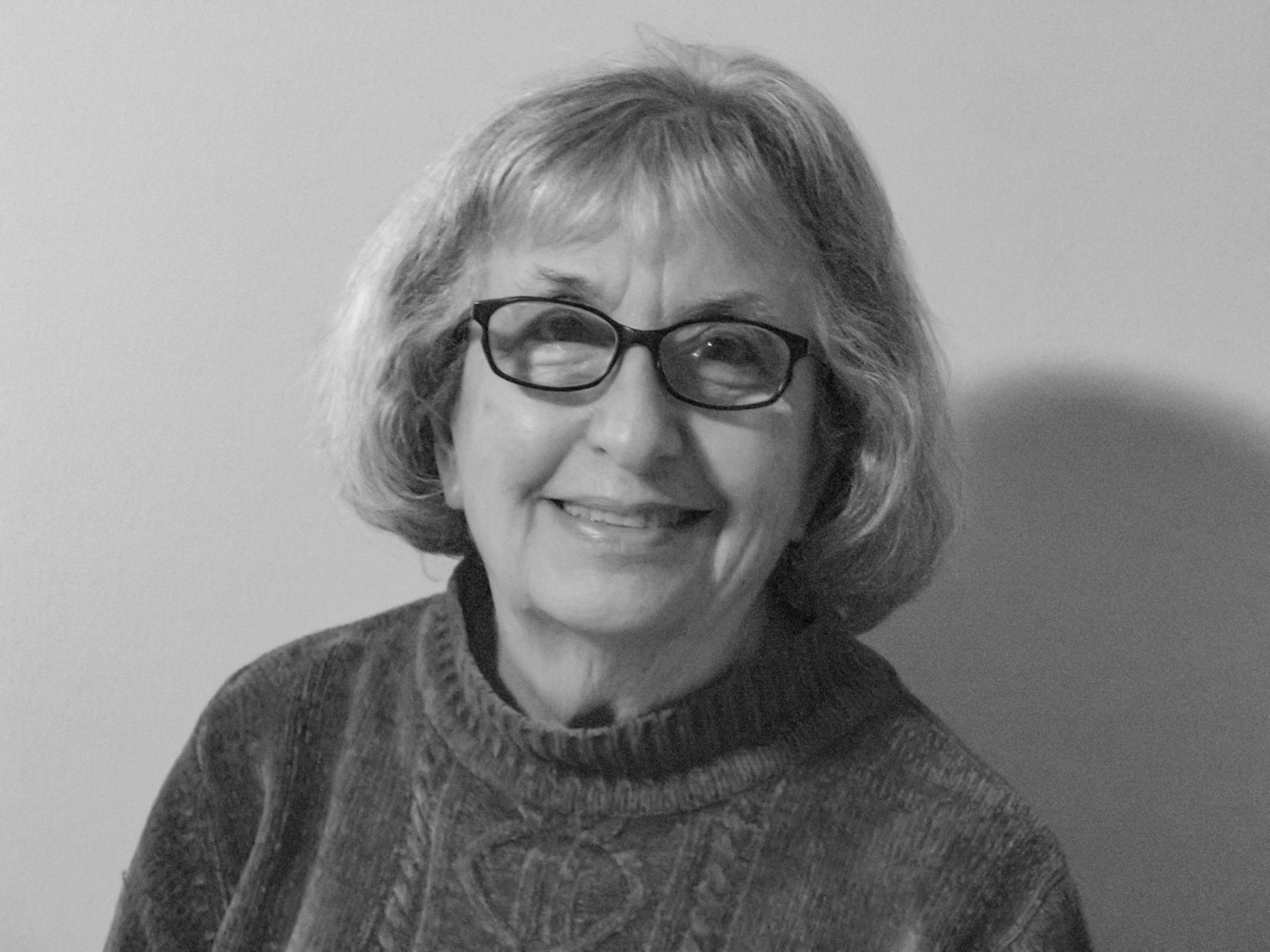
Alice Levine
Senior Editor
In a decades-long and varied publishing career, Alice Levine has edited a wide variety of nonfiction works, educational and academic books, museum catalogs, and children’s books. Prehistoric Journey: A History of Life on Earth, one of many hundreds of works she has edited, was selected for a Scientific American Young Readers Book Award. In 2012, Alice received a Hall of Fame award from the Publishers Association of the West.
As sole proprietor of Alice Levine Editorial Services, she works with publishers, writers, academics, literary agents, and service, technical, business, and professional organizations. For twenty years, she held the position of copy chief and freelance services coordinator at Westview Press. In addition to teaching copyediting and proofreading skills at the Denver Publishing Institute and through the Boulder Valley School District’s Lifelong Learning Program, she conducts workshops at publishing and corporate venues. Alice delights in sharing her passion for publishing, editing, proofreading, and the serial comma as well as the joy of working with words and writers.
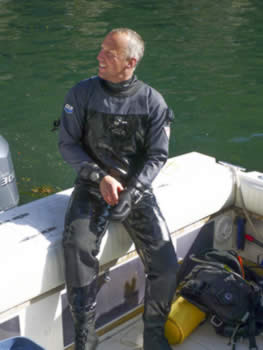
Dr. Joe Gaydos
Science Advisor
Dr. Joe Gaydos lives on Orcas Island and is a wildlife veterinarian and Chief Scientist for the SeaDoc Society, a nonprofit science-based marine conservation program of the UC Davis Veterinary Medicine/Wildlife Health Center. Joe has focused SeaDoc’s research efforts on the ecosystem-level challenges facing the Salish Sea and has worked to improve management and policy decisions regarding the stewardship of those resources. He’s coauthor, with Audrey Benedict, of The Salish Sea: Jewel of the Pacific Northwest (2015) and Explore The Salish Sea: A Nature Guide for Kids (2018). Joe has published extensively on marine wildlife health issues for such species as harbor seals, river otters, and killer whales. His profound passion for connecting people to the magic and vulnerability of the marine world is legendary!
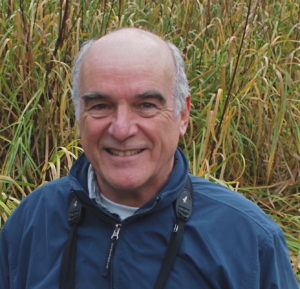
Dr. Rob Butler
Science Advisor
Dr. Rob Butler has studied, illustrated and written about birds in the Americas as a Canadian government scientist, professor, and naturalist for more than fifty years. His specialty is ornithology and he is recognized as an authority on the ecology of shorebirds and herons. Rob is coordinator of the British Columbia Breeding Bird Atlas and has authored many scholarly articles and several books, including The Great Blue Heron and The Jade Coast: The Ecology of the North Pacific Ocean, and is a coauthor of Pacific Flyway: Waterbird Migration from the Arctic to Tierra del Fuego (2020). He is an adjunct professor of biological sciences at Simon Fraser University, a Fellow of the American Ornithologists Society, The Explorer’s Club, the Royal Canadian Geographic Society, and a Signature Member of the Artists for Conservation. Rob has received several awards for conservation and community outreach. In 2018, he chaired the Vancouver International Bird Festival, which was held in conjunction with the International Ornithological Congress.
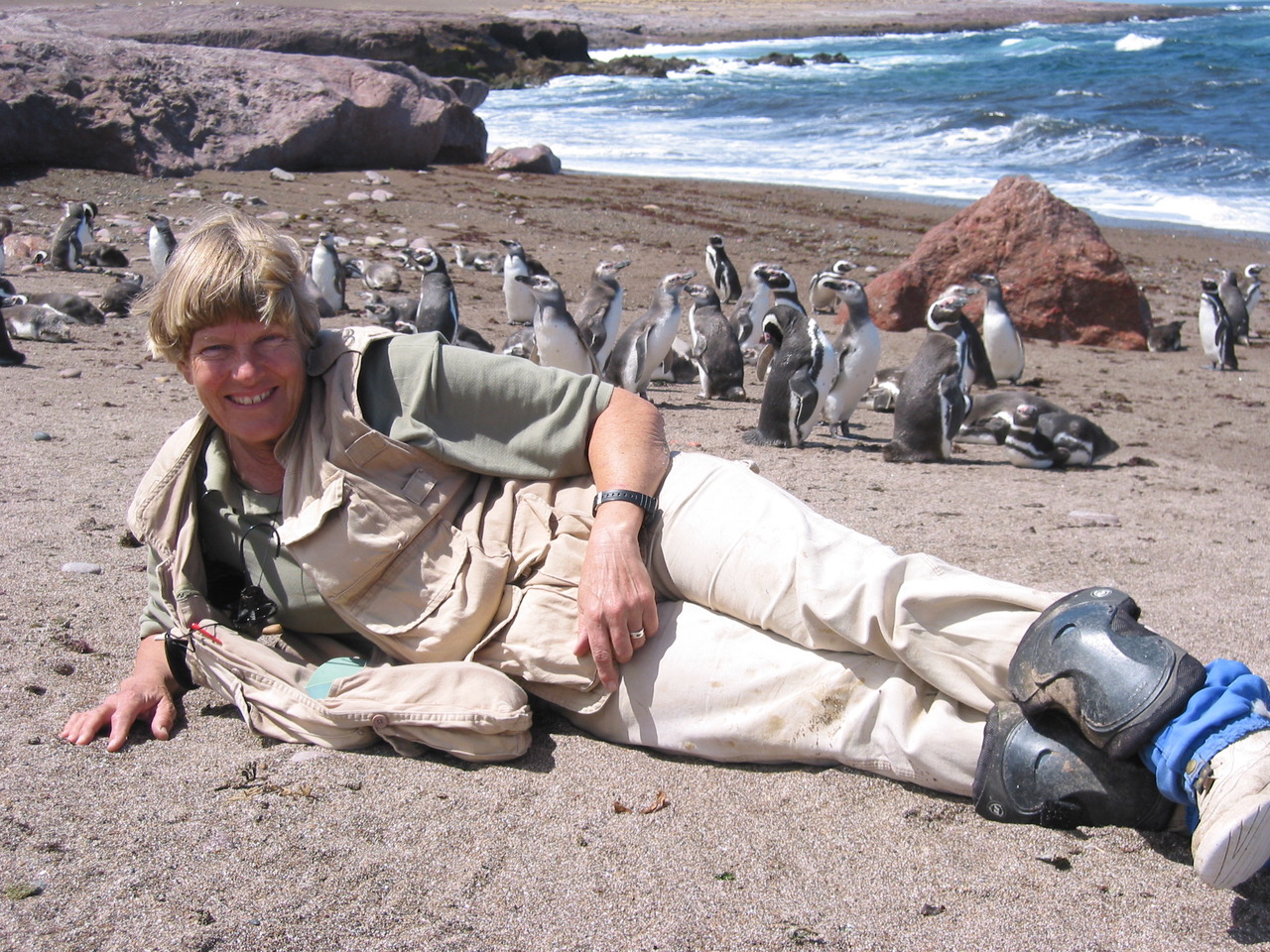
Dr. Dee Boersma
Science Advisor
Dr. Dee Boersma’s long and distinguished career at the University of Washington began in 1974, when she joined the faculty of the Institute for Environmental Studies and Zoology. Fieldwork has always been her passion, whether it was researching Fork-tailed storm-petrels in Alaska, Magellanic penguins in Argentina, satellite-tracking the foraging behaviors of penguins in the Falkland Islands, or her 45 years of work on Galápagos penguins in the Galápagos Islands. In the early 1980’s, Dee began work at Punta Tombo, in Argentinean Patagonia, where the world’s largest colony of Magellanic penguins (over 200,000 pairs!) comes ashore to breed. Her research ultimately helped prevent the harvest of these penguins for high fashion golf gloves, shifted established oil tanker lanes farther offshore to prevent penguins from swimming through petroleum, and informed legislation for Marine Protected areas in the Province of Chubut. As Dee readily admits, she loves her work in penguin colonies because they are noisy, bustling with activity, and usually far from the nearest city! She has received research funding from the Wildlife Conservation Society, the Global Penguin Society, a Heinz Award, Pew and Kellogg fellowships, and a loyal following of donors. Her publications include many peer-reviewed scientific papers and two landmark books, “Invasive Species of the Pacific Northwest” and “Penguins: Natural History and Conservation.” As Director of the Center for Ecosystem Sentinels and holder of the Wadsworth Endowed Chair in Conservation Science, Dee continues her efforts to ensure that natural history and conservation strategies inform science and policy.
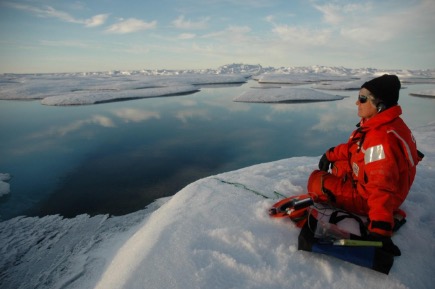
Dr. Sue Moore
Science Advisor
Dr. Moore has been awarded the International Arctic Science Award for 2020 in recognition of her outstanding achievement in understanding marine mammals as ecosystem sentinels and how climate change is influencing the phenology of both Arctic and sub-Arctic species.
Dr. Sue Moore is a senior scientist with the U.S. NOAA Fisheries Office of Science and Technology and an Affiliate Professor at the University of Washington, in Biology and the School of Aquatic & Fishery Sciences. She has 40 years of research experience focused on the ecology, bioacoustics, and natural history of whales and dolphins, with most of her work directed toward cetaceans in the Pacific Arctic region. Sue received a BA in Biology from the University of California, San Diego, a MS in Biology from San Diego State University, and a PhD in Biological Oceanography from Scripps Institution of Oceanography, with a dissertation entitled Cetacean Habitats in the Alaskan Arctic. Sue has served the Director of the NOAA National Marine Mammal Laboratory, as Chair of the Environmental Concerns Working Group of the International Whaling Commission (IWC) Scientific Committee and currently serves on various science advisory panels including the U. S. Marine Mammal Commission (MMC). Her work with the IWC and the MMC has included evaluation of the influence of oceanographic variability on humpback and right whales in the South Atlantic, especially waters offshore South Georgia and the Antarctic Peninsula.
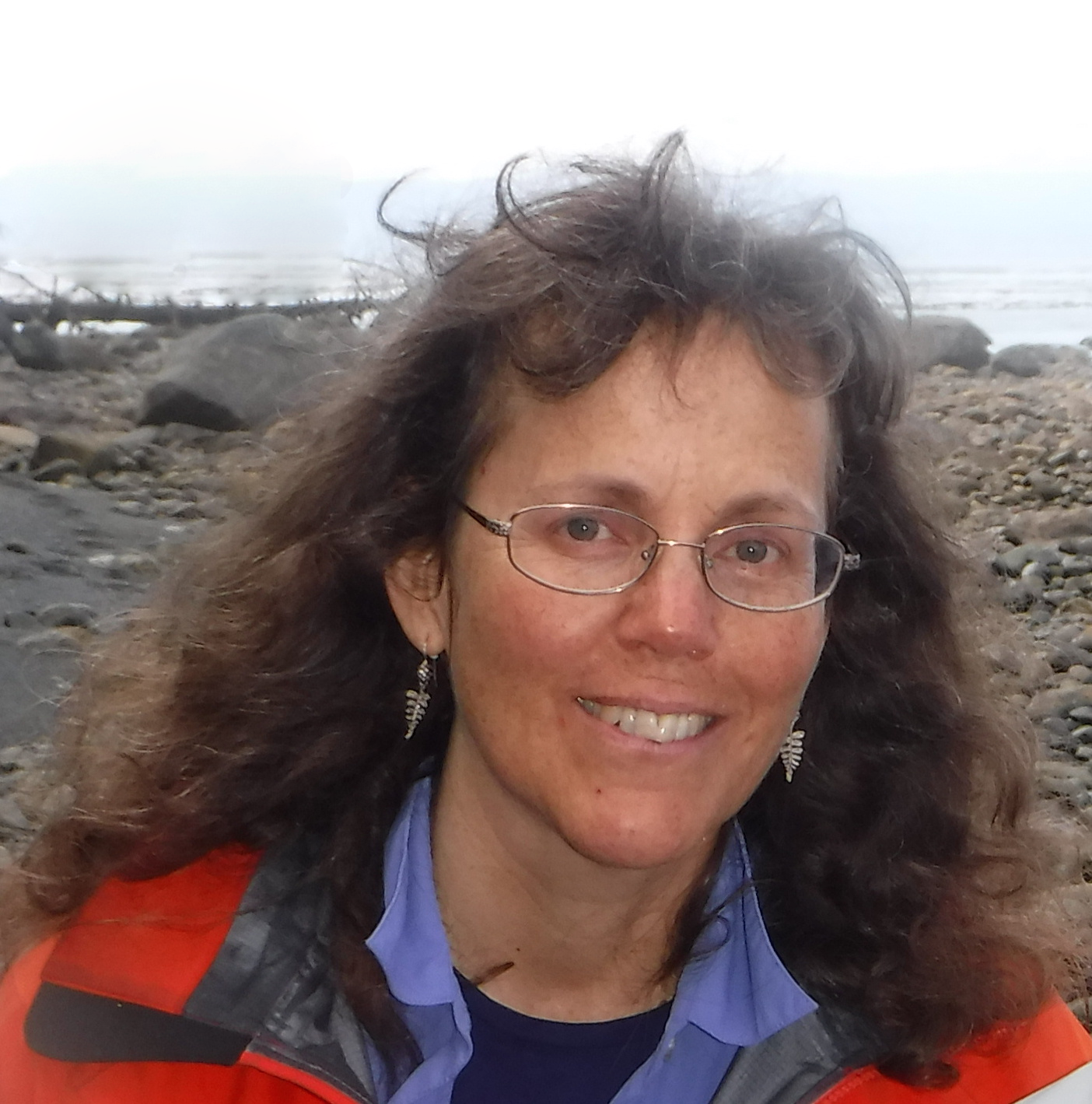
Jennifer Hahn
Education Advisor
Jennifer Hahn is a creative writer, illustrator, welder, research scientist and adventurer. Currently, she works as an adjunct professor at Western Washington University’s (WWU’s) Fairhaven College, and recently earned an MA degree in Environmental Studies (2020) from WWU for her research on Seaweed Benefits and Risks. As an undergraduate, she studied under Pulitzer-prize author Annie Dillard and worked in New York City as an editorial intern at Audubon magazine. She’s written two books: Spirited Waters: Soloing South Through the Inside Passage (Mountaineers Press, 2009) which won an award for adventure narrative writing and Pacific Feast: A Cook’s Guide to West Coast Foraging (Skipstone, 2010). Jenny continues to divide her time between teaching, writing and working as a kayak guide and naturalist in Southeast Alaska, Washington, British Columbia, Baja Mexico, and the Galapagos Islands. At long last, Jennifer will soon be clearing the cobwebs from her writing room to take up her long-awaited third book!
